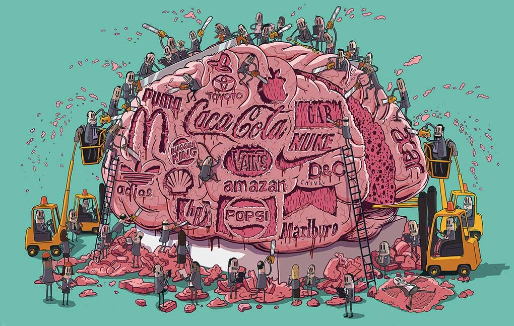INTRODUCTION
Cultural globalization is the result of technological advancements, improved transportation, and enhanced communication, leading to the exchange and fusion of cultural practices, ideas, and values worldwide. While this phenomenon has contributed to diversity and mutual understanding, it has also raised concerns about cultural homogenization, often referred to as the McDonaldization of cultures.
UNDERSTANDING CULTURAL GLOBALIZATION
Cultural globalization is the process through which cultures diffuse and interact due to increased global interconnectedness. It involves the movement of ideas, practices, and products across national borders, facilitated by technological advancements, media, and multinational corporations. Cultural globalization promotes cultural hybridization, where elements from different cultures merge, creating novel expressions.
The Concept of McDonaldization-McDonaldization, a concept coined by sociologist George Ritzer, draws parallels between the fast-food industry and the broader process of globalization. It refers to society’s standardization, efficiency, and rationalization, much like the operational principles of McDonald’s fast-food chain. The four key components of McDonaldization are efficiency, calculability, predictability, and control. Critics argue that these principles have influenced various aspects of society, including culture.
IMPACT OF GLOBALIZATION ON INDIAN AND SOUTH ASIAN CULTURES

CULTURAL GLOBALIZATION AND HYBRIDIZATION
Cultural globalization has facilitated extensive exchange and hybridization of ideas, beliefs, and practices between Indian and South Asian cultures and the rest of the world. Media, travel, and migration have exposed people to diverse cultural expressions, leading to the blending and reconfiguration of traditional values with modern influences. This cultural hybridization has resulted in unique and dynamic cultural forms.
WESTERN INFLUENCE AND CONSUMERISM
The increasing influence of Western culture, particularly American culture, has impacted Indian and South Asian societies on a global scale, leading to the adoption of consumerist values and lifestyles. This shift has influenced traditional cultural practices as individuals embrace Western fashion, cuisine, and entertainment. The proliferation of multinational corporations, including fast-food chains like McDonald’s, has accelerated this process.
FAST FOOD CULTURE AND CHANGING FOOD HABITS
One of the most noticeable aspects of McDonaldization in Indian and South Asian cultures is the rise of fast-food consumption. Traditional culinary practices, rooted in regional diversity and homemade meals, are being replaced by the convenience and standardization offered by fast-food chains. This shift can be attributed to changing lifestyles, urbanization, and the desire for Westernized experiences. However, concerns have arisen regarding the impact on health, local economies, and cultural heritage.
STANDARDIZED RETAIL AND GLOBAL BRANDS
The McDonaldization of Indian and South Asian cultures is also evident in the proliferation of global retail chains and brands. The spread of Western-style shopping malls, dominated by multinational corporations, has transformed the retail landscape and consumer behavior. These establishments provide standardized experiences, and predictable environments, prioritizing efficiency and convenience. While they offer access to a wide range of products, they contribute to the homogenization of local markets and the displacement of traditional artisans and small businesses.
MEDIA INFLUENCE AND POPULAR CULTURE
The advent of satellite television, the internet, and social media has exposed Indian and South Asian audiences to a plethora of global entertainment and popular culture. Western films, television shows, music, and fashion have gained significant popularity, influencing local tastes and preferences. This widespread adoption of Western popular culture, often associated with the “McDonaldization” of societies, has raised concerns about the erosion of traditional values and the loss of cultural distinctiveness.
SOCIETAL IMPLICATIONS

CULTURAL HOMOGENIZATION VS CULTURAL DIVERSITY
The McDonaldization of Indian and South Asian cultures has sparked debates about the loss of cultural diversity and the emergence of a homogenized global culture. Critics argue that the standardization and commodification of cultural practices diminish the uniqueness and richness of local traditions. However, proponents of cultural globalization argue that cultural hybridization and the incorporation of global influences can foster cultural diversity by creating new forms of expression and understanding.
RESISTANCE AND REVIVAL OF LOCAL CULTURE
In response to the perceived McDonaldization, a growing movement has emerged to revive and preserve local cultural practices. Efforts are being made to promote indigenous art, cuisine, music, and traditional crafts. Cultural festivals and events celebrate local heritage and encourage community participation. Additionally, some individuals and organizations are advocating for sustainable development and responsible consumption, supporting local businesses and artisans.
CONCLUSION
Cultural globalization has undoubtedly transformed Indian and South Asian cultures, leading to the apparent McDonaldization of various aspects of society. While the spread of fast food, global brands, and Western popular culture has raised concerns about the erosion of traditional values and cultural diversity, it is crucial to acknowledge that cultural globalization also enables cultural exchange, hybridization, and the emergence of new forms of expression. To strike a balance, societies must actively promote and preserve their local cultural practices while embracing the opportunities and diversity offered by globalization.
-BHAWINI SRIVASTAVA


